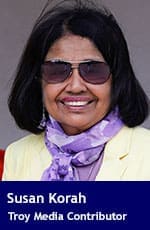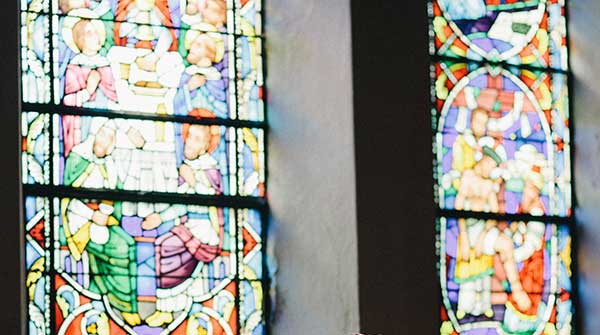Church leaders plead for help: Iraqi Christians forced to flee amidst violence and instability
 A multitude of problems – corruption, discrimination and unemployment at home, exacerbated by the fallout from the Gaza war – are driving an alarming number of Iraqi Christians from their homeland, seeking emigration as a last resort, say Church leaders and advocacy organizations.
A multitude of problems – corruption, discrimination and unemployment at home, exacerbated by the fallout from the Gaza war – are driving an alarming number of Iraqi Christians from their homeland, seeking emigration as a last resort, say Church leaders and advocacy organizations.
At least two prominent Church leaders have raised red flags, appealing to the international community to help their people.
“People in Iraq are really afraid that the violence will spread beyond Gaza,” said Archbishop Bashar Warda, Chaldean Archbishop of Erbil, in a recent interview with Aid to the Church in Need, the pontifical charity that helps persecuted Christians around the world.
 Photo by Karl Fredrickson |
| Related Stories |
| Christian convert hunted by Islamists seeks asylum in Canada
|
| Hong Kong churches under threat from Communist China
|
| Fear of erasure fuels Artsakh exodus
|
“Speaking on behalf of all the people – especially the minorities, who tend to suffer more than others, especially in conflict situations – please God, no more war,” he pleaded.
Describing this renewed impetus towards emigration as “alarming,” Warda told me the threat of the Christian community’s disappearance from its ancient homeland is looming larger than ever.
“We do not want to disappear, but we will, without a strong, determined and ceaseless voice from the international community,” he said.
Fewer than 150,000 Christians remain in Iraq, down from the 1.5 million prior to 2003. Approximately 67 percent are Chaldean Catholics (an eastern rite of the Roman Catholic Church), and nearly 20 percent are members of the Assyrian Church of the East. The remainder are Syriac Orthodox, Syriac Catholic, Armenian Catholic, Armenian Apostolic, Anglican and other Protestants and evangelicals.
Unemployment is a major factor in the desire to emigrate, with people still struggling to make ends meet after the destruction of livelihoods by ISIS, Warda explained. Seven years after the military defeat of ISIS, the struggle to earn a living goes on.
“Since the right to return was granted in 2017, there have been no livelihood programs for minorities in their own country,” he said. “How can one have dignity without work?”
The war in Gaza – with the growing threat of spilling into neighbouring countries – is fueling even more fear, he said.
The archbishop’s concerns were echoed in a recent statement by Cardinal Louis Sako, whose official position as the patriarch of the Chaldean Church in Iraq was revoked by the Iraqi government in July 2023. Since then, he has left Baghdad, the capital city, and lives in the semi-autonomous Kurdistan region in the north of the country.
“More than a million Christians have emigrated. Most of them were with qualified scientific, economic and skilled backgrounds, but who cares?” he said in the statement dated Jan. 10.
The statement further noted that instability and lack of equity have renewed the flow of migration; that 100 families from Qaraqosh immigrated in the past months, in addition to dozens of families from other cities, such as Ankawa in the Kurdistan region, due to anxiety about the future and the failure of employers to pay salaries.
The Cardinal listed several causes reinforcing the perception that the only solution lies in emigrating to a safer, more stable country.
“Attacks on Christians are still continuing – on their skills, their jobs, the seizure of their properties, we have documented examples,” he wrote. “Cases of forced conversion by ISIS or others, the Islamization of minors, failure to preserve their rights, an attempt to deliberately erase their heritage, history, religious legacy, expressions of hatred in some religious discourses as well as in education books.”
A recent tragedy, a fire that broke out last September during a Christian wedding reception, killing more than 100 in the northern town of Qaraqosh, was another major setback for the community.
A Human Rights Watch researcher reported that government investigations found local authorities were negligent in their failure to enforce safety regulations. Contractors had used cheap, highly flammable construction materials. The report further noted that corruption allowed violators of building codes to act with impunity, reinforcing the Christian community’s suspicions.
Fr. Adris Hanna, a Syriac Catholic priest and native of Qaraqosh who visited the bereaved families after the tragedy, wrote a moving account of its impact.
“Exhaustion has taken its toll on the people, and thoughts of migration now loom large. The residents of Qaraqosh have faced persecution and expulsion, driven from their homeland due to their ethnicity and faith. In 2014, the city was completely emptied, with a significant portion left in ruins. Nevertheless, upon the defeat of the terrorists, they courageously returned to their beloved hometown, rebuilding it and adamantly refusing to abandon it,” Hanna wrote.
“However, the scale of this catastrophe is so immense that even the most steadfast, who had previously resisted the idea of migration despite living under constant threats, are now contemplating the possibility.”
The reasons for the accelerated emigration of Iraq’s Christians were documented by a 2023 report entitled The Elephant in the Room: The Forgotten Plight of Christians in Iraq and Syria. Produced by A Demand for Action (ADFA), the Sweden-based charity that advocates for Middle Eastern Christians, it features the stories of several Christians from the region who have already fled to Lebanon but are languishing there in poverty and uncertainty, lacking access to healthcare and other fundamental human rights.
“Behind the statistics and the term ‘refugee,’ there are the human stories of individuals torn apart by conflicts, religious persecution and atrocities, desperately seeking safety, family reunification and hope in a foreign land,” Nuri Kino, ADFA’s president, said. “We produced this report to give them a voice and a face. We will be presenting it this week at the International Religious Freedom Summit in Washington, D.C., to spur international lawmakers to take urgent action to support this vulnerable group.”
Warda said the disappearance of the Christian presence in Iraq would be an irreparable loss to the country.
“Of course, we don’t want our people to leave, and they don’t want to leave either but feel they must, out of necessity,” he said. “We carry the name of Christ and His light in this country. It is our duty to uphold the flame of faith and bestow blessings through our presence. If we were to migrate entirely who would proclaim His name to the people?”
Susan Korah is an Ottawa-based journalist. This article was submitted by The Catholic Register.
For interview requests, click here.
The opinions expressed by our columnists and contributors are theirs alone and do not inherently or expressly reflect the views of our publication.
© Troy Media
Troy Media is an editorial content provider to media outlets and its own hosted community news outlets across Canada.

